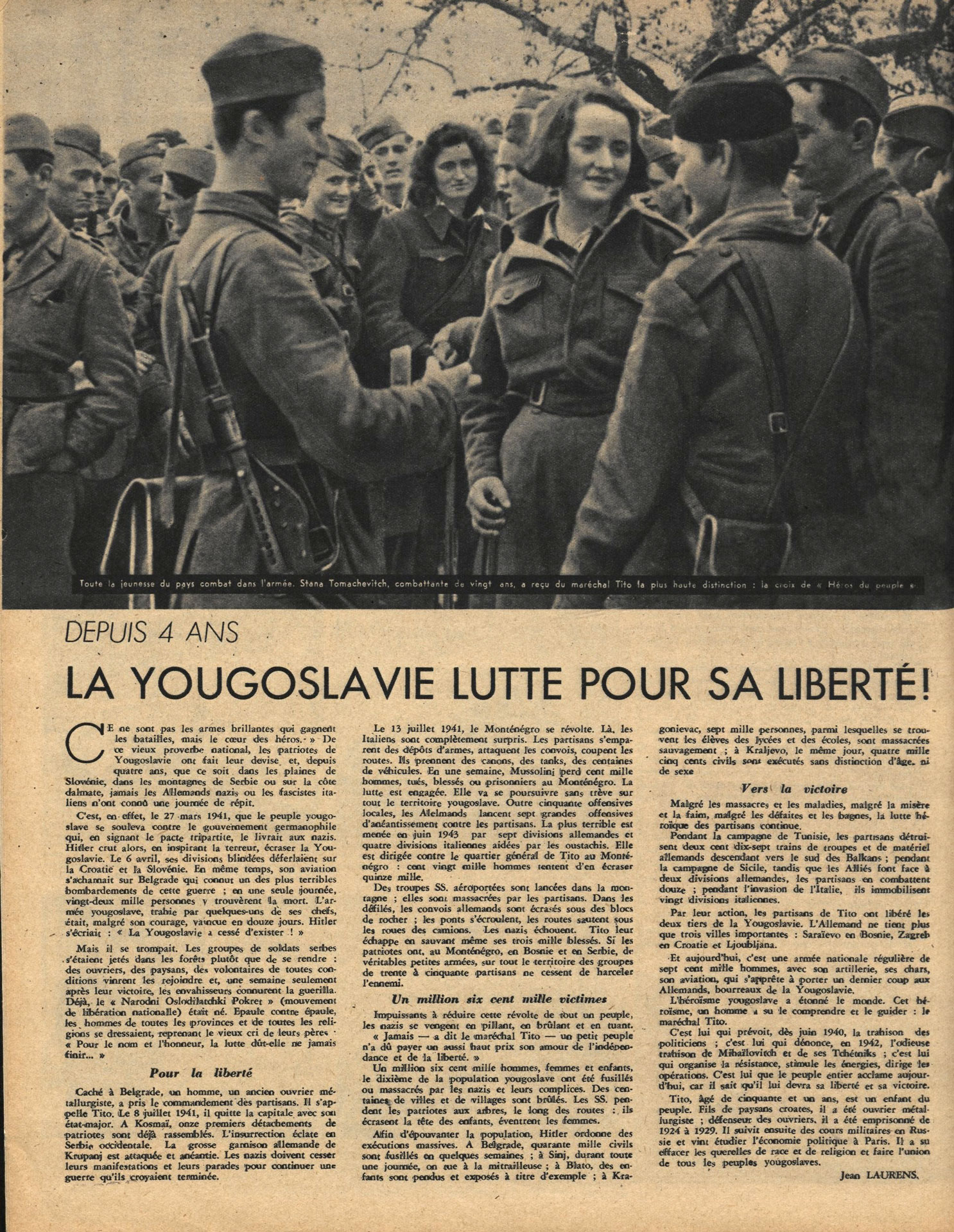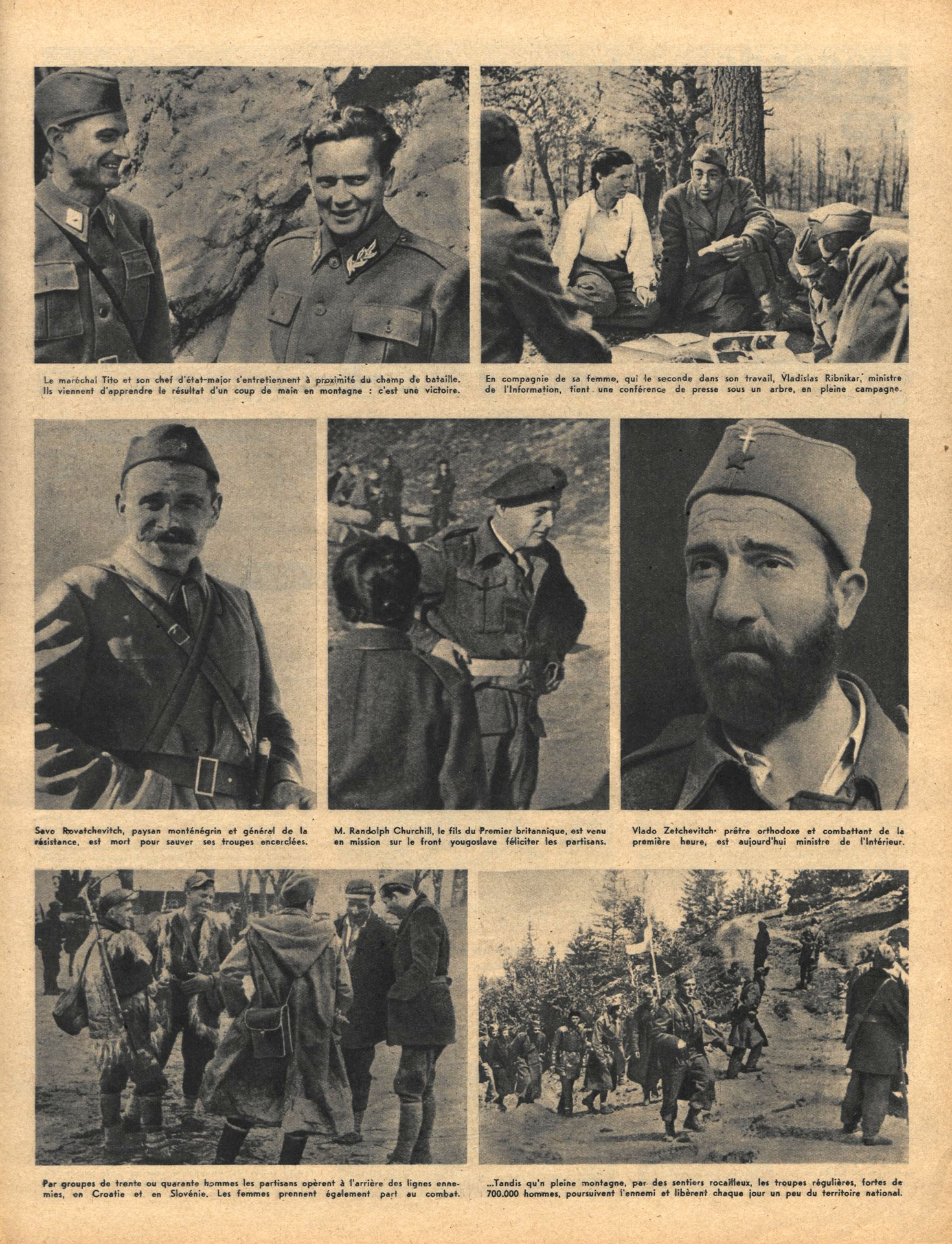Yugoslav Partisans as a model for France?
Paris and Sarajevo are more than 1,300 kilometres apart. Despite this geographical distance, there were various links between the resistance movements in France and Yugoslavia when both countries were occupied. One was the participation of Yugoslavs in the French resistance – especially Yugoslavs who had taken part in the Spanish Civil War and remained in France after 1939. But there were not only personal contacts: The war that the Yugoslav partisans were waging against the German occupiers since the summer of 1941 soon attracted attention in the French resistance, especially among communists. Just a few weeks after the Communist Party of Yugoslavia had called for a popular uprising throughout Yugoslavia, a communist underground newspaper in France wrote: “Everywhere in oppressed Europe, people are rising up, patriots are organising themselves in the decisive struggle against German National Socialism. It is in Yugoslavia that the partisan movement has taken on the greatest scope.”
The reference to the Yugoslav Partisans became stronger over the years and their way of directly and massively attacking the German occupiers was seen by French communists as a model to follow. But de Gaulle was against a popular uprising, also because he feared that this would lead to a communist takeover ; his aim was to build a French army outside of the country, which should have the main role in liberating France, with the support of the Allies. On the contrary, French communists believed that the liberation should come from within and that it was necessary to give massively arms to the maquis and other resistance groups “so that from now on war could be waged against the Hun as in Yugoslavia”, as one communist resistance leader requested in March 1944. The discussions intensified in the forefront of the expected allied landing in France, when communists in France pleaded for immediate action: “And even before a landing takes place, it might be possible to liberate certain suitable regions from the stain of occupation, just as it was achieved in Yugoslavia.”
That Yugoslav Partisan warfare was well known in France is also shown by the fact that the head of the collaborating French government, Pierre Laval, mentioned it in one of his speeches in April 1944 – not as a model, but as a dangerous threat: “I have some reason to believe that we will have war in another form, that an attempt will be made, as in Yugoslavia, to wage a partisan war (…) Do you believe that it is in this form of civil war that liberation can occur?”
Nicolas Moll



